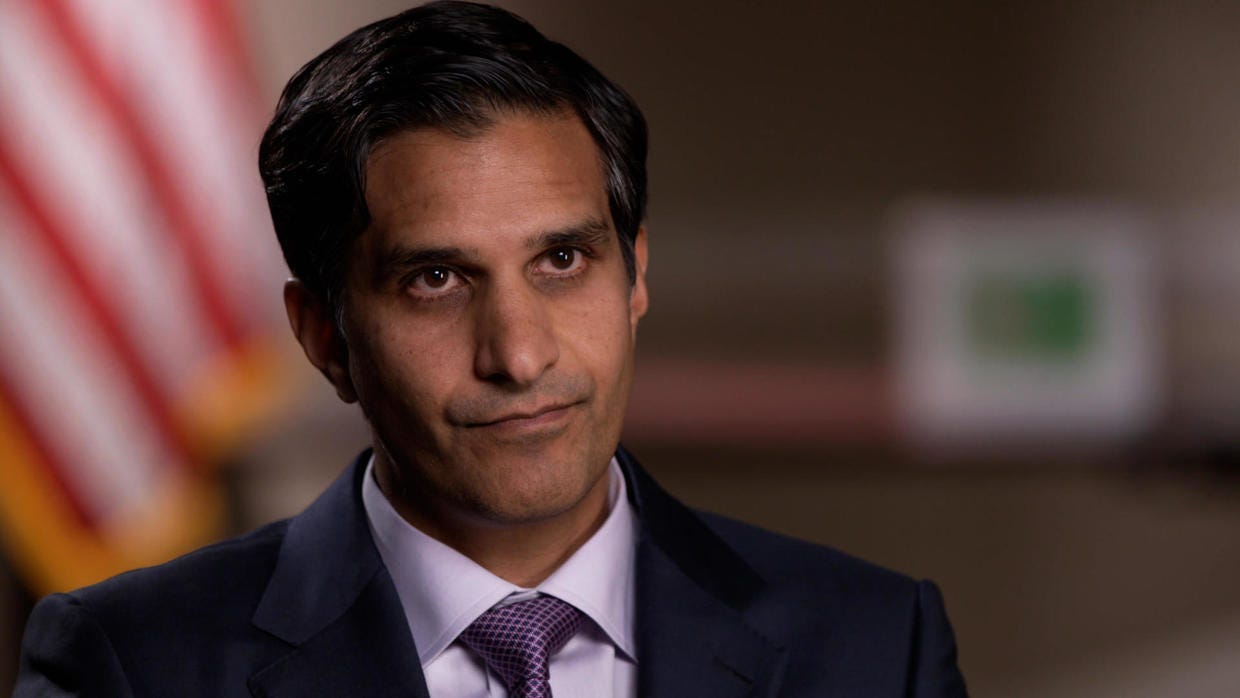The Peter Principle
“There is nothing more deceptive than an obvious fact.” – Sir Arthur Conan Doyle
Robert Greene’s wildly successful book The 48 Laws of Power is a unusually useful collection of tips for those seeking to climb a laddered power structure, whether it be in a corporate, government, or even criminal setting. The first law – never outshine the master – is especially important for those in the early building stages of their career. Rare is the ambitious junior manager who isn’t convinced they are better than their boss, but rarer still is a successful one who openly tries to prove it.
We were reminded of Greene’s first law in late March of 2022 when 60 Minutes featured an obscure government bureaucrat in a segment titled Economic shock and awe: The strategy behind the economic sanctions against Russia. In the episode, correspondent Sharyn Alfonsi fawns over Daleep Singh, then the deputy national security adviser for international economics, for his role in designing the sanctions that were sure to bring Vladimir Putin’s Russia to its knees. Viewers were fed two clear messages: Singh is the real genius in the White House, and Putin is on the verge of folding as a result.
Although Singh had the prescribed pedigree – stints at Duke, Harvard, MIT, and Goldman Sachs dot his made-for-government resume – he lacked the most relevant qualification: he never worked at a real company that makes stuff. His sanctions were destined to fail from the start.
As is widely known, the Russian economy is dependent on revenue generated from its exports of energy and related commodities like foodstuffs, fertilizers, and mined goods. The Biden administration’s plan to attack Putin’s revenue by restricting these goods from reaching the global markets was conceived under the dubious assumptions that (1) they could so restrict trade to a meaningful extent, and (2) the price action arising from inevitable commodity shortages wouldn’t undo their efforts.
Predictably, they were wrong on both counts.
We say predictably with bold confidence because we were among a small number of voices who did just that. The price elasticity of demand for commodities all but guaranteed Putin would more than recoup any volume losses by way of the foreseeable increase in prices that would follow. On June 1 of last year, we summarized our views in a piece called Crazy Pills in which we emphasized what should have been obvious to our political leaders. Here is a key passage (emphasis added throughout):
“Russia’s energy is going to find its way to the market, and, as perverse as it might sound, we should want it to. Instead of attacking the supply of Putin’s energy, we should be doing everything in our power to increase ours. That is the only way to lower price and materially impact the funding of his war machine. For highly inelastic products like oil and natural gas, price action works both ways. It does not take significant undersupply for prices to skyrocket, nor does it take significant oversupply for prices to crash.”
Into the market, Russia’s commodities did indeed flow. Prices globally lifted on the high tide of reduced access to frictionless supply, allowing Putin to undercut the spot rate and move his goods at prices favorable to both opportunistic buyer and sanctioned seller.
As a reward for correctly pointing out the material flaw in the West’s approach to sanctions and suggesting a strategy that was far more likely to achieve the stated objectives, we were accused of being “unpatriotic” and “a Putin puppet” by several accounts on Twitter, even a few we used to respect. Only in our hyperpolarized political environment can recommending a provably better way to defeat a common enemy be considered heresy. A year later, as the war in Ukraine drags on, what has been the real impact of the sanctions on the Russian economy? On ours? Has the West learned from its flawed logic, and will it finally shift course? Let’s follow the barrels.



